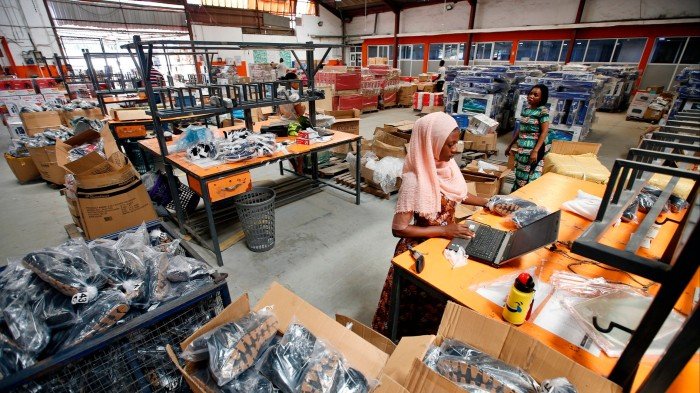Unlock the Editor’s Digest for free
Roula Khalaf, Editor of the FT, selects her favourite stories in this weekly newsletter.
The chief executive of Jumia, the ecommerce group often dubbed the “Amazon of Africa”, said it needs to “rebuild credibility” with investors as it steps up its push to reach profitability amid rising competition from Chinese rivals.
Francis Dufay told the Financial Times the pan-African group had “history” with the stock market where “too much had been promised and not enough” was delivered since it listed in New York six years ago to become the continent’s first tech “unicorn” — a company valued at more than $1bn.
“My focus is very simple we have to deliver the numbers. The target is break-even in 2027,” he said.
Since its 2019 IPO, Jumia’s share price is down almost 90 per cent — falling more than 60 per cent over the past year alone — while last month its former largest institutional investor Baillie Gifford sold off its remaining stake, as it has struggled to convince investors of its strategy. Jumia’s valuation is now about $400mn.
Dufay, who took over in late 2022 following the removal of the company’s co-executives and entire management board, has been aggressively cutting costs over the past two and a half years, including slashing jobs and exiting unprofitable markets, in the group’s latest effort to restructure.
“Between now and 27, we’ll just deliver the numbers and that will be a lot more impactful than big speeches or anything and the markets will recognise it as we rebuild our credibility”, he added.
The company has reduced its losses since Dufay’s appointment in 2022, when it reported a $206mn loss. It has forecast a pre-tax loss of between $50mn to $55mn this year, compared with a $97.6mn loss in 2024.
The push to turn profitable comes as Jumia, which pioneered ecommerce in many of its markets, now faces growing competition from Chinese low-cost giants Temu and Shein.
Jumia has sought to increase the number of Chinese merchants selling their products on its ecommerce platform. It now has a team of about 70 people in Shenzhen focused on finding new traders.
The volume of goods from the Chinese sellers, ranging from fashion, beauty and appliances, accounts for one-third of Jumia’s total sales volume, he said.
“We believe we can fight them,” said Dufay of Temu and Shein. “We have . . . more diverse product offerings in categories they can’t offer, we’re more tailored to the market and we have competitive productive offerings in their categories from our international sellers.”
Jumia has pulled back its aggressive expansion plans, with its business now spanning nine countries compared with 14 when it went public. Dufay has signalled the company will instead double down on its existing markets, including serving more lower earning customers outside the bigger cities.
He said the Nigerian market offered the “greatest potential in terms of growth and profitability” for Jumia, where it currently only had a relatively small business. He added there was also scope for significant growth in Kenya, Uganda and Egypt.
Ecommerce still makes up only a small fraction of overall retail sales in Africa despite rapid growth over the past decade. Challenges include low internet usage, logistics and payment problems as many people do not have bank accounts or cards to pay. High inflation and currency depreciation have also blighted ecommerce’s prospects in Africa.
Dufay said he has been “talking to investors and having roadshows” as he seeks to persuade investors of the company’s plans.
African telecommunications group Axian, which operates in nine countries across the continent, announced last month it was acquiring an 8 per cent stake in Jumia. This week it increased its investment further to 9.2 per cent. Dufay described Axian as a “serious investor” whose fintech and consumer credit business was “complementary to ecommerce”.
In the medium term, Dufay is also optimistic his company could be a beneficiary of the excess supply emanating from Asian manufacturers hit by US President Donald Trump’s trade tariffs.
“The exports from China and south-east Asia will inevitably slow down and it means they will have look for new markets,” he said. “There’s a big, growing undersupplied market here in Africa. Jumia is the middle man and we could be in a good position to tap that market and serve our customers better.”

